Category: Inclusive Conversations at Work
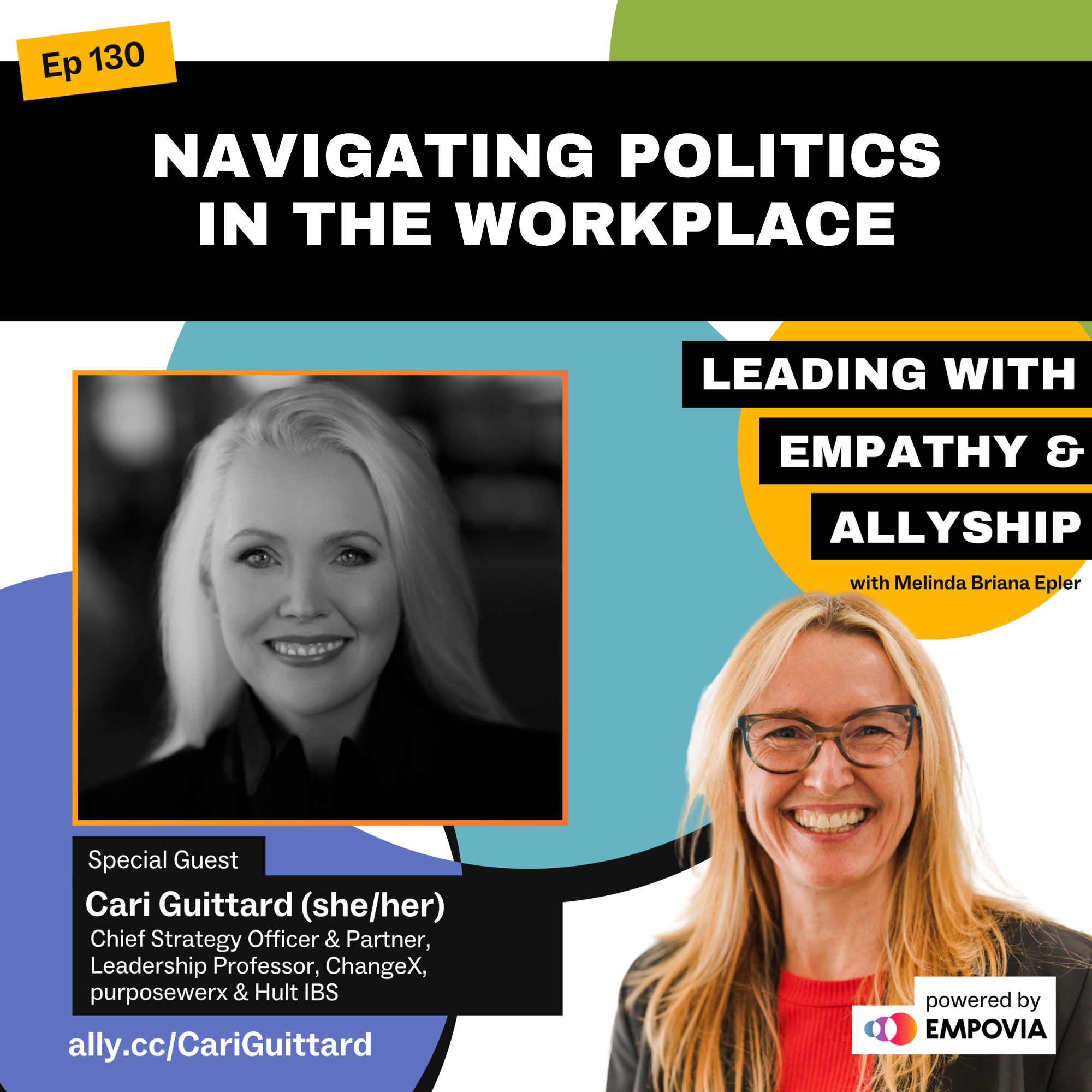
| 56 min
What exactly is political intelligence? And why is it important to have in the workplace?
In Episode 130, Cari Guittard, Chief Strategy Officer & Partner at ChangeX & purposewerx and Leadership Professor at Hult International Business School, joins Melinda in a conversation around the constructive approach to addressing politics within the workplace. Drawing from her multiple experiences in the DEI, ESG, and political fields, Cari delves into practical tools to develop our political intelligence. She discusses why this skill set can be necessary for advancing our careers and positioning ourselves as purpose-driven leaders, the importance of curiosity in political conversations, and how it can enhance our situational awareness to adapt effectively to moments of transition or crisis. She also taps into how organizations can respond to anti-wokeness in a way that opens the door for creativity and creates positive change at work.
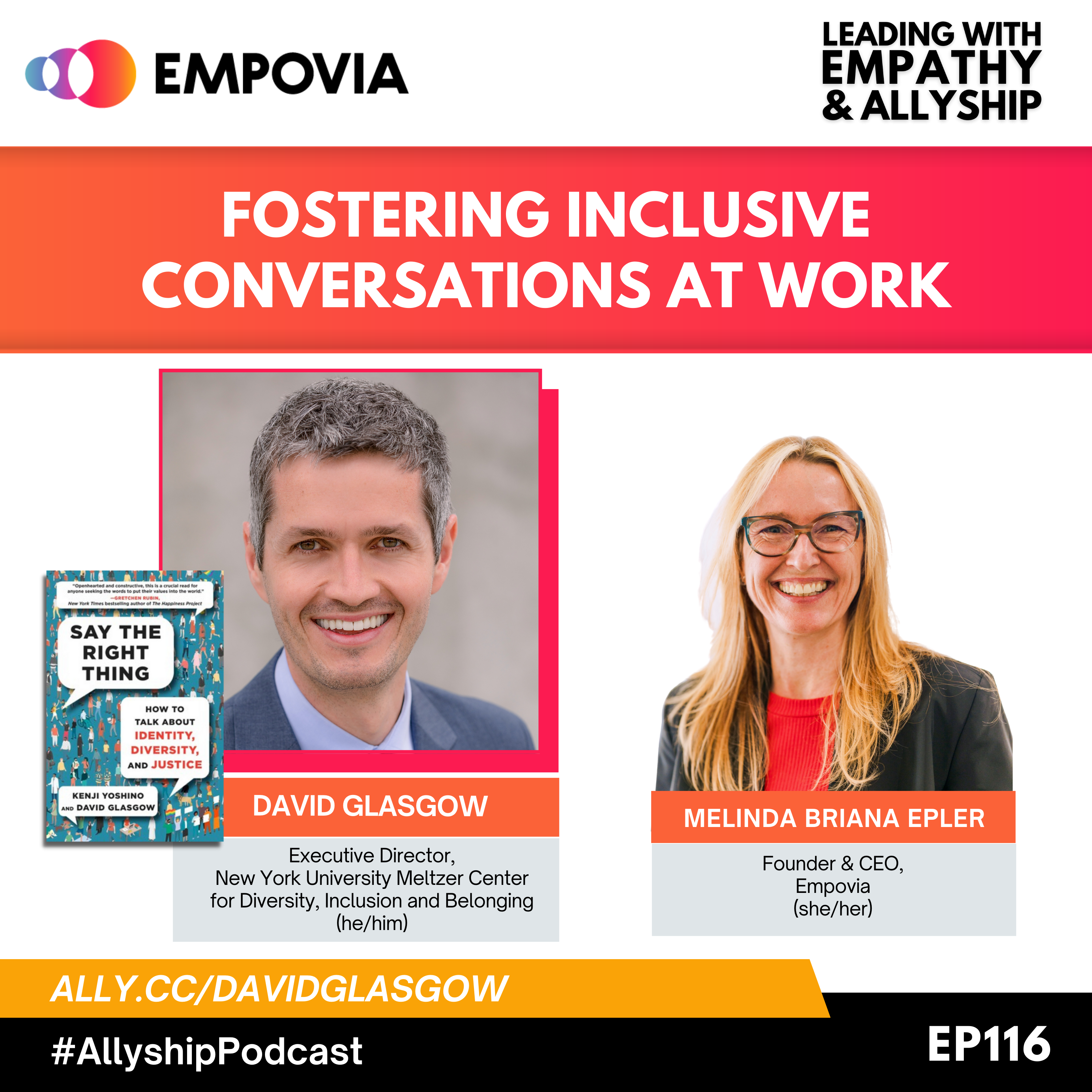
| 38 min
In Episode 116, David Glasgow, Executive Director of the New York University Meltzer Center for Diversity, Inclusion, and Belonging, joins Melinda in an enlightening discussion on how to have inclusive conversations about identity in the workplace. They explore key skills for having identity conversations, such as adopting a growth mindset and acknowledging where we are on the controversy scale when we disagree with others’ perspectives. They also discuss why it’s important to recognize unproductive forms of communication, which David refers to as avoid, deflect, deny, and attack (ADDA). They also touch on how leaders can create an inclusive culture by showing empathy to team members who make mistakes in these conversations.

In Episode 106, Lisa Gelobter, CEO of tEQuitable, joins Melinda in a discussion on ways to address interpersonal conflict in the workplace. They discuss the true costs and consequences of interpersonal conflicts for an organization. Lisa shares an open-ended question framework tEQuitable uses in their process that can help us all create constructive conversations at work and shift team cultures. They also look into the Key Performance Indicators (KPIs) for managing workplace conflict to improve business outcomes.
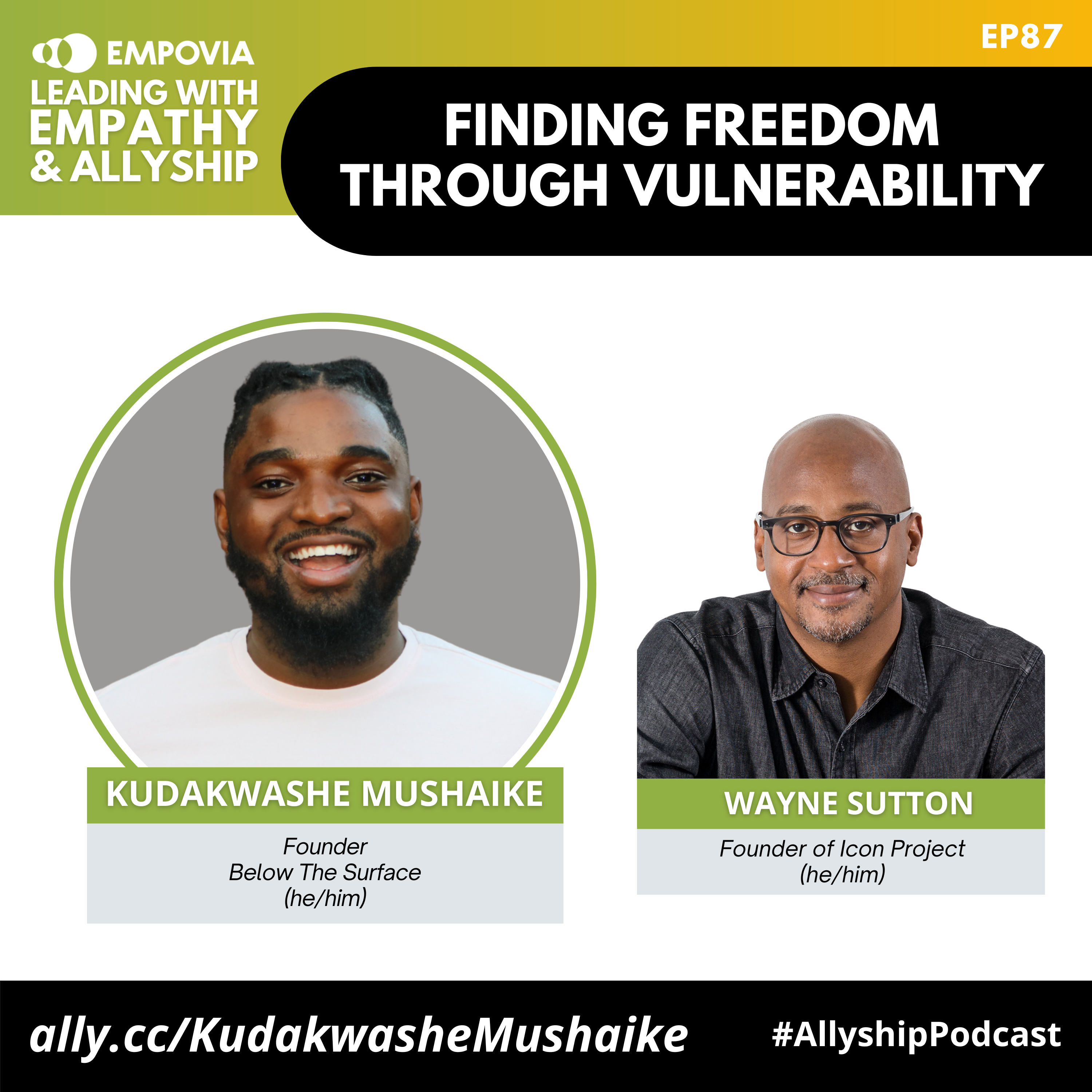
In Episode 87, Kudakwashe Mushaike, Founder of Below The Surface, shares a brief and powerful talk from Change Catalyst’s third Icon Summit hosted by Icon Project Founder and Change Catalyst Co-Founder, Wayne Sutton. In “Finding Freedom Through Vulnerability,” Kudakwashe tells us how authenticity, freedom, and love play a pivotal role in the journey of understanding vulnerability and how leaning into vulnerability can allow us to experience the world around us more fully. Vulnerability is important as we work to be good allies—and as we ask each other for allyship. We’re excited to share this special session with you.
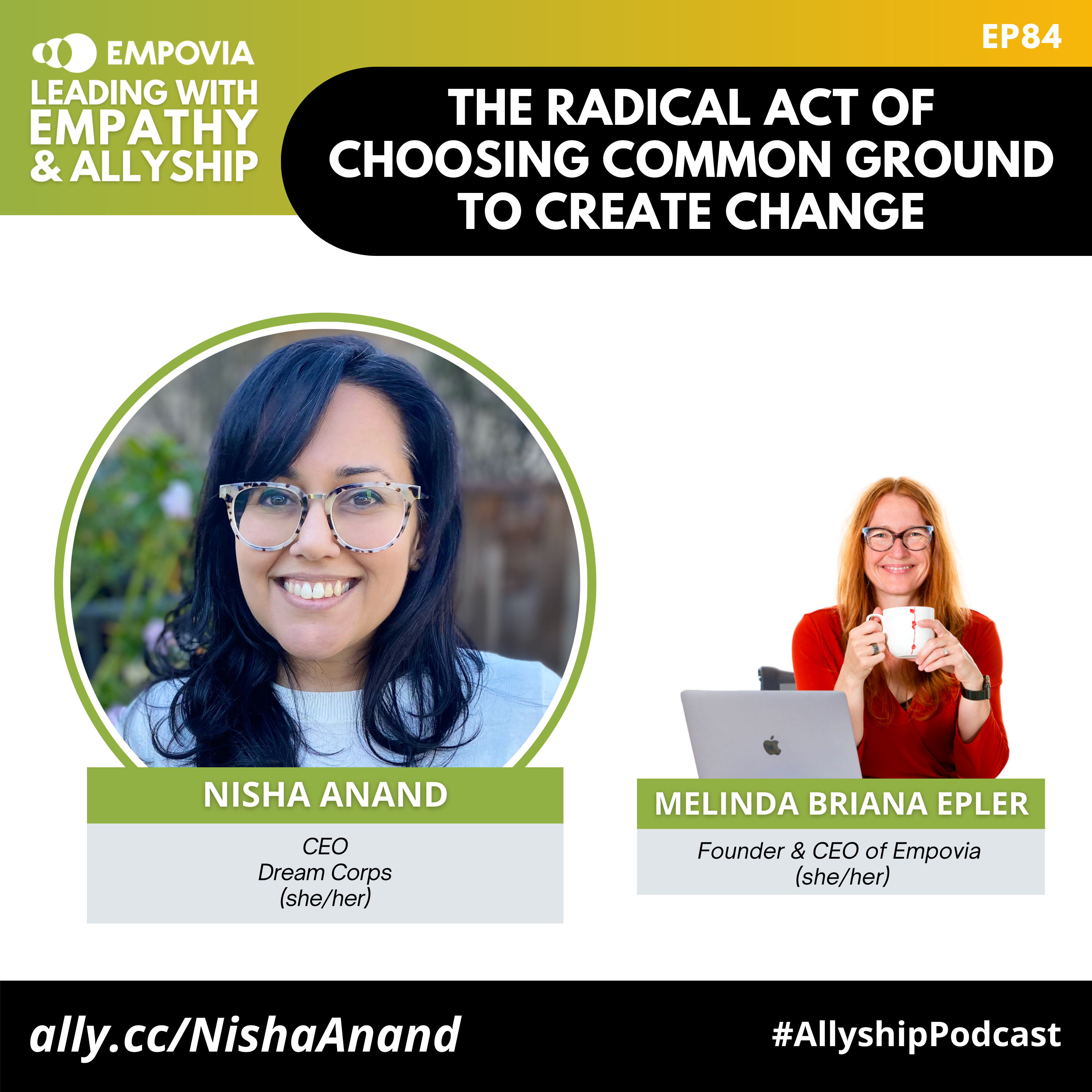
In Episode 84, Nisha Anand, CEO of Dream Corps, joins Melinda in a reflective conversation about how we can make unlikely allies and find common ground to create large-scale change in our organizations, culture, and legislation. They share their take on the Supreme Court’s draft opinion that would overturn Roe v. Wade, its impact on abortion rights across different communities, and the power every individual can have in pushing for an inclusive piece of legislation. Nisha also provides practical steps for creating common ground in communities and workplaces by learning how to have hard conversations, listening to understand, and finding commonalities that can help drive change forward.
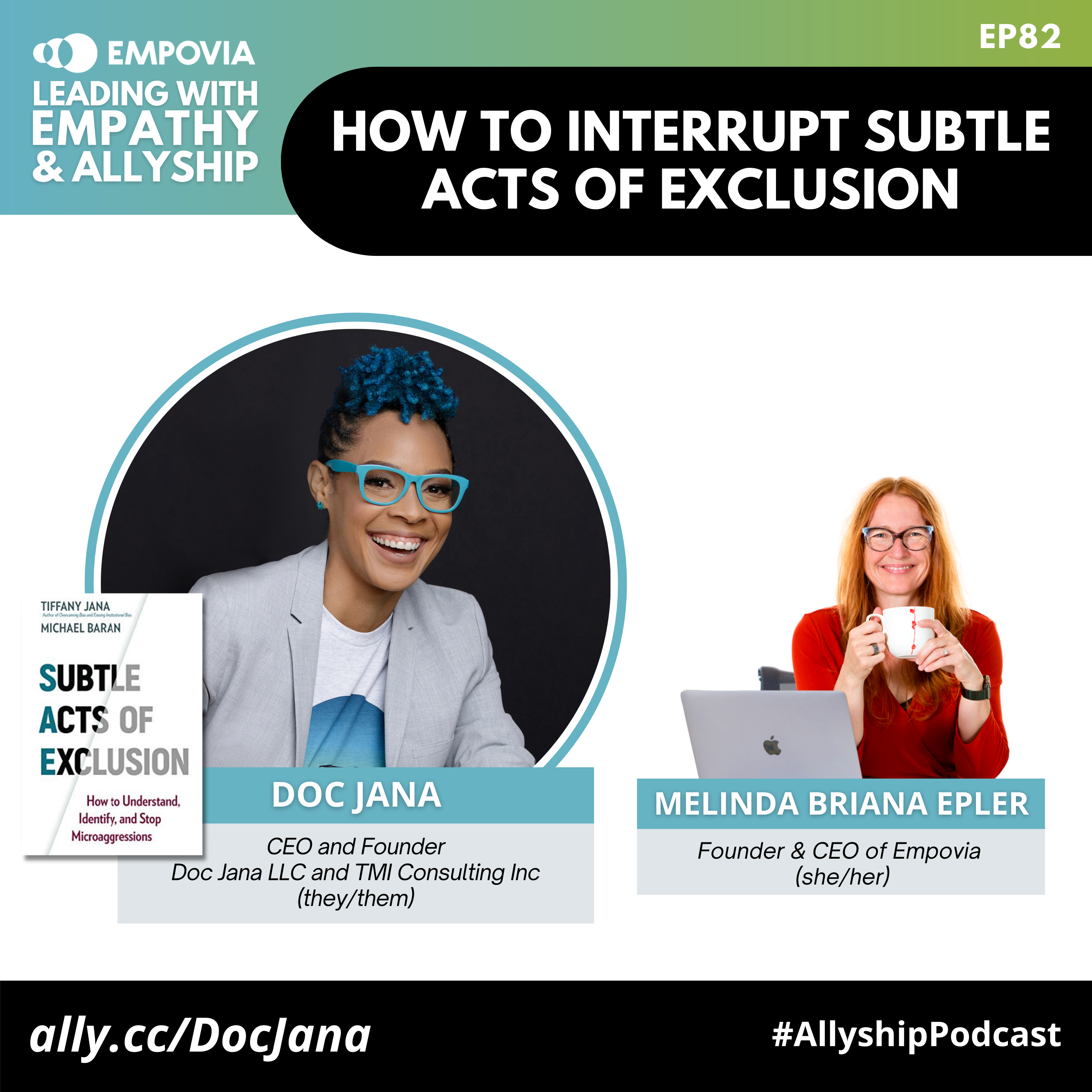
In Episode 82, Doc Jana, CEO & Founder of Doc Jana LLC and TMI Consulting Inc, joins Melinda in a conversation that gives individuals and organizations a clear approach to interrupting what Doc calls “subtle acts of exclusion,” also known as microaggressions, at work. They guide us through the steps in addressing our own biases, which are often the root of these subtle acts of exclusion. Doc also shares their latest work and their participation in pleasure activism as a way to reclaim joy and find liberation and healing from the pain of trauma.
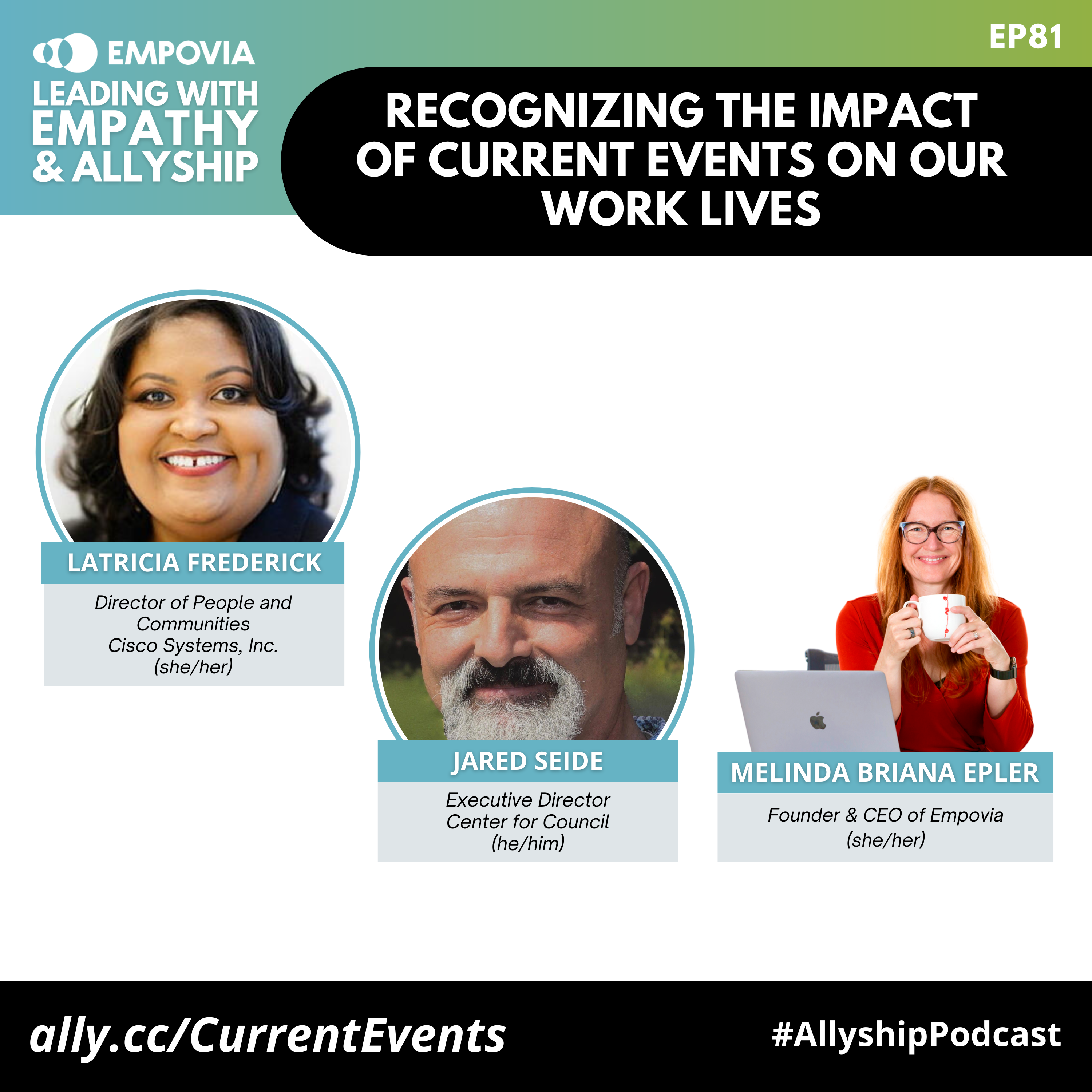
In Episode 81, Melinda is joined by leadership and management experts LaTricia Frederick and Jared Seide in a live recording. They discuss important ways for us to recognize, as well as protect our well-being from, the impact of current events on our work lives. They also dive into how managers, companies, and allies can take part in creating safe, compassionate spaces for addressing our experiences—whether it be through showing support, harnessing the power of vulnerability, or sharing stories.
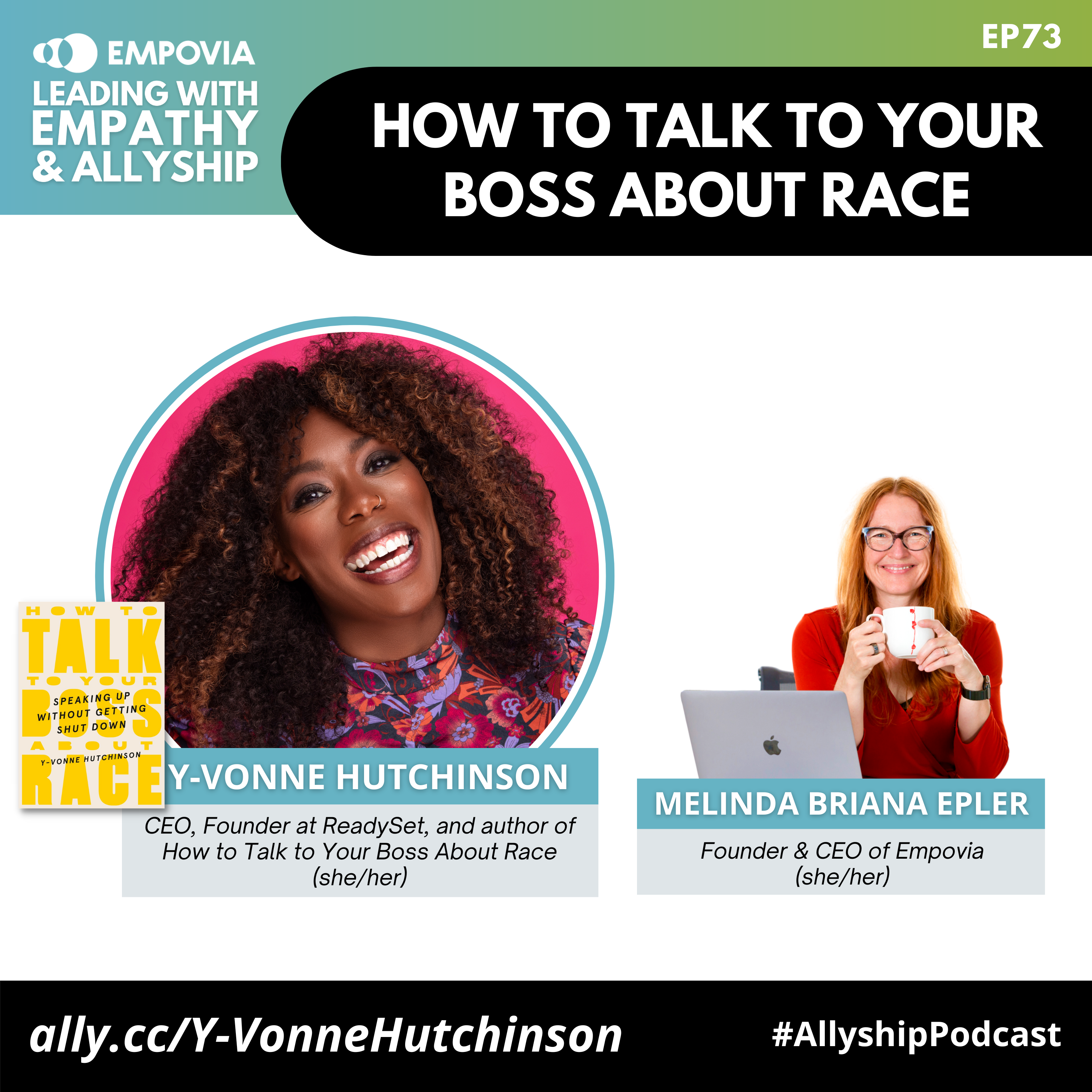
In Episode 73, Y-Vonne Hutchinson, CEO & Founder at ReadySet and author of How to Talk to Your Boss About Race, joins us to discuss how our labor history has informed the racism and microaggressions we observe in our workplaces today, how we can create change through difficult but important conversations, and how we can rethink the role of power as we discuss these issues with our bosses.
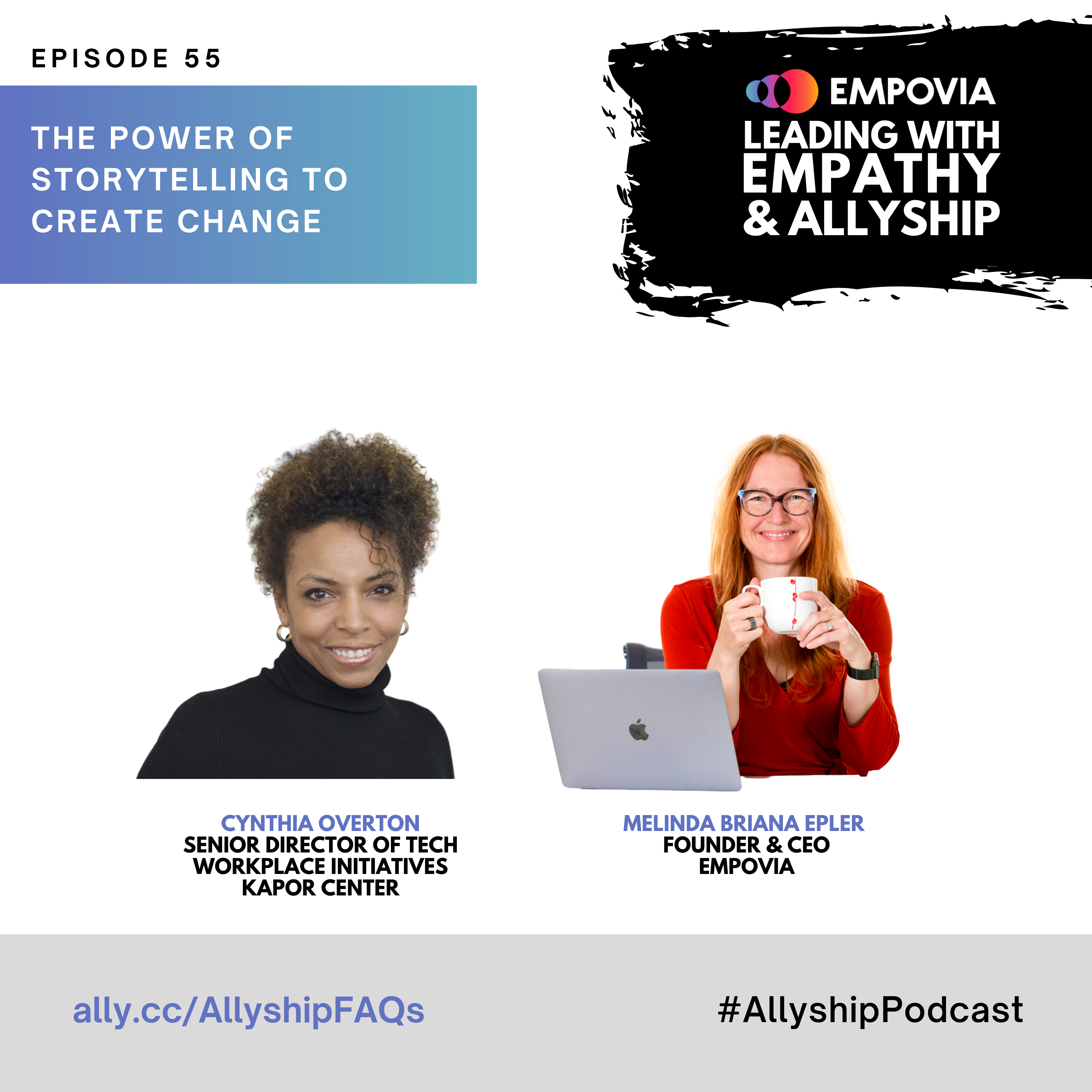
In Episode 55, Cynthia Overton, Senior Director of Tech Workplace Initiatives at the Kapor Center, dives into conversation with Melinda about the impact of storytelling. They discuss important ways storytelling can change our perception, whether that is by advocating through storytelling, interrupting our own stories to create internal change, or using stories to build empathy and trust.

In this episode, Melinda Briana Epler, Founder & CEO of Change Catalyst, and Manisha Amin, CEO of the Centre for Inclusive Design, discuss “It’s OK To Make Mistakes As An Ally.” Our work as allies and advocates continues to shape society for the better. The work can also feel heavy – especially when we stumble. Manisha explores how to get over our fears when it comes to allyship; call each other in rather than out; own our truth; apologize and repair; and forgive others, as well as ourselves.
